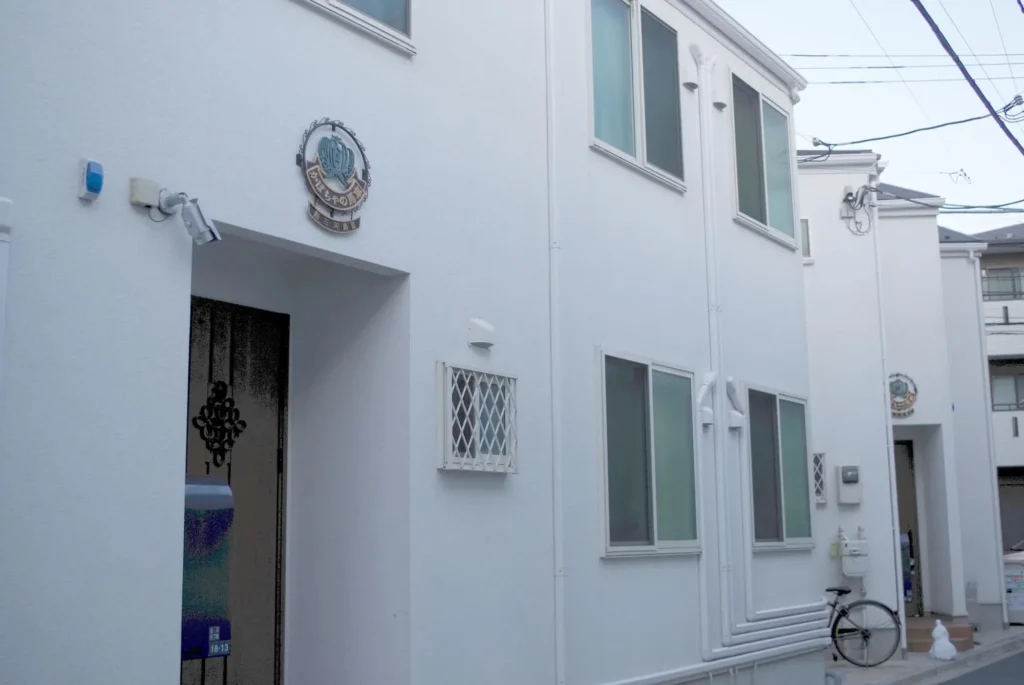「ボッタクリアパート|サブリースの罠にご注意!かぼちゃの馬車事件から学ぶリスク」
今日は【守る力】
サブリースの罠に注意
というお話をします。
●かぼちゃの馬車の行き先は破産街道だった~サブリース?それは保証より恐怖をシェアした投資~

不動産投資の中でも
シェアハウス投資(サブリース)
というものについてお話しします。
かなりの被害を出した
『事件』について
お話ししようと思います。
かぼちゃの馬車
ご存知でしょうか?
女性専用シェアハウス投資です。
タレントのベッキーさんが
CMに出演されていました。
という会社が土地を取得して
大体1棟1〜1.5億円の
シェアハウスを
建てて販売する
という事をしていました。
(出典:https://www.nikkei.com/article/DGXMZO29406620U8A410C1EA5000/)
サラリーマン投資家の人に向けて
販売していました。
30年間一括借り上げ
=サブリース
というのを謳ってました。

をうたい文句に
やってたんですけど
それが途中で
破産してしまったんです。
購入したサラリーマンには
借金だけが残り
破産に追い込まれました。
●サブリース~保証の皮をかぶった、リスクの狼~

これは何が問題だったのか?
サブリース契約の罠ですね。
サブリースというものが
悪い訳ではないんですけど
このサブリースというのは
結構これを使った悪い投資商品とかに
ダマされやすいので
お気をつけいただきたい。
そもそも
サブリースとは何なのか?

一括借り上げの家賃補償ですね。
一括借り上げとは
そんなに難しい仕組みではなく
アパートやマンションの
オーナー=家主がいて
普通は入居者さんを
不動産仲介業者が
部屋それぞれに
付けていく訳ですが
そうではなくて
このサブリースというのは
家主が一括して
このサブリース会社に

全部の部屋を貸すんですよね。
建物ごと貸す。
今回のケースは
スマートデイズという会社に
家主が一括して貸して
このサブリース会社が
入居者を付けていく。
特徴は家主からすると

毎月固定で家賃が入るので
楽なんですよね。
普通だったら
入居者Aさんが抜けた時に
その分家賃が減っちゃうんですけど
この場合だと
サブリース会社と
家主の契約なので
AさんとかBさんが退去しても
一応理屈上は
サブリース会社との契約なので
家賃が減らない。
入居者とのやりとりがなくて楽で
家主が貸してるのは
サブリース会社であって
入居者に又貸しして
やりとりしていくのは
サブリース会社です。
ではサブリース会社は
何のために入るのかというと
家主と入居者との

家賃の差額で儲ける。
例えば
仮に1部屋家賃が
10万円するところ
家賃9万円で
サブリース会社が
家主から借りる。
この入居者たちには
10万円で貸していく。
この1万円ずつの差額の分で
サブリース会社というのは
利鞘を取る。
この仕組み自体が
悪い訳ではないんですよ。
●サブリースの皮をかぶったポンジスキーム~銀行が止めたら地獄~

シェアハウスが
相場の値段で建ってたら
別に問題無かったんですけど
仮に
1億円で建てられるアパートを
サラリーマン投資家を狙って
1.5億でスマートデイズが販売する。
要は
非常に高い金額で

ボッタクリみたいな金額で販売する。
すると
相場より家賃が高くなってしまう
じゃないですか。
オーナーからすると
高い価格で買ってしまってるから
高い家賃で募集する。
入居者は相場より高いので

誰も入らない。
ここはサブリース会社
=スマートデイズが補償するから
大丈夫です
という建前で
サラリーマン大家さんや投資家に
売りつけてたんですよね。
ただ実際には
誰も入らないんですよね。
こうなるとサブリース会社が
困るじゃないですか。
家主には固定の金額を
払わなければならない。
入居者が1人しか
入っていない状況であれば
サブリース会社は困る。
だからサブリース会社は
資金繰りに困って
どうしたかというと

(出典:https://reibs.jp/mba/kabocha/)
ドンドン新しいアパートを
建てていった。
要は
高いボッタクリアパートを
ボンボン建てていった。
サラリーマン達に
銀行融資を受けさせて
売りつけていった。
そこの儲けを先の
投資家達の
家賃補償にあてていった。

(出典:Wikipedia)
ポンジスキーム
みたいなものです。
ポンジスキームについては
以前お話しています。
↓
#28 【最重要!!】詐欺『ポンジスキーム』に気をつけろ!!~1~
その物件を買うには
普通のサラリーマンであれば
1億円も用意出来ない。
だから
銀行に融資をさせてた。
しかし
その銀行が融資をしなくなった途端に
破綻したんですね。
~~~つづく~~~
Special Thanks college president Ryo.

●おまけ
≪≪perplexityちゃんによる文章まとめ≫≫
「かぼちゃの馬車」事件は、サブリース契約の危険性を示す典型例です。
スマートデイズ社は、30年間家賃保証をうたい文句に相場より高額なシェアハウスをサラリーマン投資家に販売しました。
しかし実際には高すぎる賃料設定で入居者が集まらず、家賃保証を維持するため新規物件販売からの資金を既存オーナーへの支払いに充当する、実質的にポンジスキームのような仕組みとなっていました。
銀行が融資を打ち切った瞬間、資金繰りが破綻し、会社は倒産。残された投資家は、多額の借金のみを抱える結果となりました。
サブリース自体は一括借り上げ方式で正当な仕組みですが、「保証」という言葉に安心してしまうと大きな落とし穴があるのです。
不動産投資では相場と需要を自分で確認し、本当に持続可能な仕組みかを冷静に見極める「守る力」が欠かせないといえるでしょう。
- https://www.propertyagent.co.jp/contents/8267
- https://www.tson.co.jp/media/rei/390/
- https://fudousan-lawyer.jp/tips/「かぼちゃの馬車事件」の全貌について、振り返/
- https://www.tohshin.co.jp/magazine/article0148.html
- https://reibs.jp/mba/kabocha/
- https://www.glc-inc.jp/column/8735/
- https://ja.wikipedia.org/wiki/スマートデイズ
- https://rimawarikun.com/column/kabochanobasya/
- https://yamatozaitaku.com/column/realestate-investment/smart-days/
- https://www.ntv.co.jp/gyoten/articles/324wlzhdfrn6h4lfemq.html
≪≪Chat-GPTくんによる英訳≫≫
Today’s Topic: “The Power to Protect”
Beware the Trap of Sublease Agreements
The fate of the Pumpkin Carriage? Bankruptcy Avenue — Sublease? An investment that shared fear more than guarantees.
—
Today, I want to talk about a type of real estate investment: share house investments using sublease agreements.
Specifically, we’ll discuss a case that caused significant damage — the infamous “Pumpkin Carriage” incident.
Have you heard of it?
It involved share houses exclusively for women, and the celebrity Becky even appeared in the commercials.
The company behind it, Smart Days (CEO Kenta Akama), would acquire land, build share houses costing around 100–150 million yen per building, and then sell them.
(Source: [Nikkei](https://www.nikkei.com/article/DGXMZO29406620U8A410C1EA5000/))
They primarily sold these investments to salaryman investors, promising a 30-year guaranteed rent under a sublease agreement.
> “Smart Days guarantees your rent!”
That was the selling point — but eventually, the company went bankrupt.
The investors were left with nothing but debt, ultimately pushed into bankruptcy themselves.
—
Sublease: The Wolf in Guarantee’s Clothing
So, what went wrong?
It was the trap within the sublease agreement.
Subleasing itself isn’t inherently bad, but it’s easy for unscrupulous investment schemes to exploit it, so caution is essential.
—
What is Subleasing?
At its core, it’s just rent guarantee through bulk leasing.
Normally, an apartment or building owner rents individual units to tenants through a real estate agent.
With a sublease, the owner rents the entire building to a sublease company, which then finds tenants.
The benefit for the owner: fixed monthly rent without tenant management headaches.
Even if tenants move out, the rent from the sublease company doesn’t decrease, at least in theory.
The sublease company profits from the difference between what they pay the owner and what they charge tenants.
For example:
Rent for a unit: 100,000 yen
Sublease company pays owner: 90,000 yen
Charges tenants: 100,000 yen
The sublease company pockets the 10,000-yen margin.
This mechanism isn’t inherently bad.
—
【A Ponzi Scheme in Sublease Disguise — Hell Awaits When the Bank Stops】
The problem arose because Smart Days sold overpriced apartments to salaryman investors.
An apartment that could be built for 100 million yen was sold for 150 million yen.
Rent had to be set higher than the market rate to cover the cost.
Tenants wouldn’t move in because the rent was too high.
On paper, the sublease company guaranteed rent, so investors were convinced it was safe.
In reality, apartments remained empty.
The sublease company had to continue paying fixed rent to owners, but without tenants, they ran into cash flow problems.
Their solution? Build more overpriced apartments and sell them to new investors, using bank loans for salarymen, and use the profits to pay earlier investors’ guaranteed rents.
This was essentially a Ponzi scheme.
(Source: Wikipedia)
Ordinary salarymen couldn’t afford to buy these apartments outright, so bank loans were essential.
Once the banks stopped lending, the whole system collapsed.
—
This English version keeps the original story’s cautionary tone, structure, and key figures, while making it clear and readable for an English-speaking audience.
Special Thanks OpenAI and Perplexity AI, Inc








